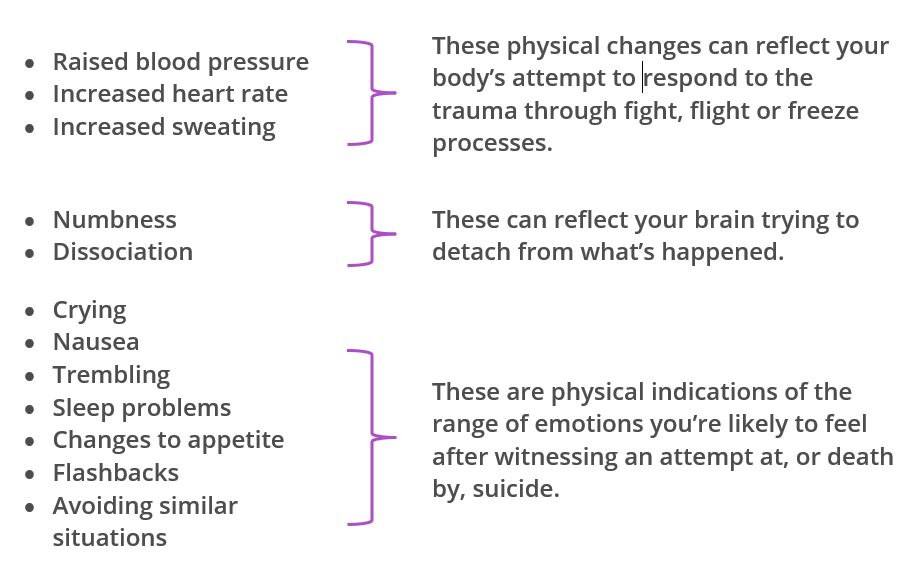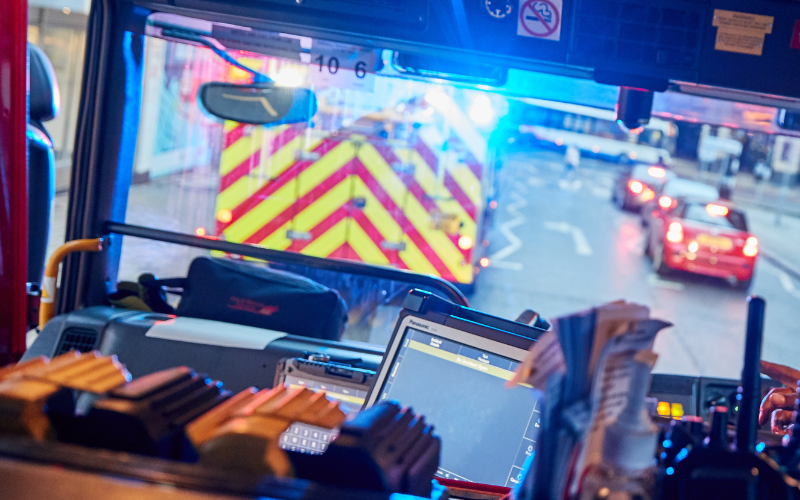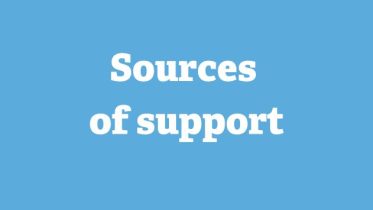Witnessing a suicide might involve being present during the suicide, being the first person on the scene after it’s happened, or taking a call from someone who’s about to attempt suicide.
While anyone could potentially witness suicide, firefighters are more likely to than others. These experiences can be traumatic and profound, even if you don’t know the person who attempted or died by suicide.
What to do after an experience: postvention
As outlined on the postvention page, there are many things that can help after any experience of suicide, and we recommend reading this guidance. There’s also an excellent guide to understanding the experience of the suicide of someone you don’t know, including practical advice, available here.
Witnessing suicide as a trauma event
Trauma is the result of experiencing a stressful, frightening or distressing event, such as witnessing a suicide. When we experience trauma, our brains try to process what’s happened, and this can lead to physical and emotional changes. People respond to a suicide in many different ways, and there’s no ‘right’ way to react. Feelings you might experience include:

You might also feel angry – about what’s happened and/or with the person who attempted suicide or died by it. You may feel guilty about not being able to intervene or change what happened. You may perhaps feel sad or concerned about the person’s family, or you could even feel triggered in relation to people you’ve lost in the past. All of these are normal emotions and responses that people may have after witnessing a suicide.
How to cope afterwards
Whatever you’re feeling, it can be difficult to process and live with. However, to help you through this process, and get to the point where things feel easier, it is important that you:
- Allow yourself to feel emotions – remember, no emotion or intrusive thought is ‘bad’ or ‘wrong’. They may seem difficult and overwhelming at first, but they will usually pass so try not to judge yourself.
- Look after yourself – although these things might be difficult for you right now, it can really help to eat well, get enough sleep, and spend time outside exercising.
- Stick to your routine – although this may seem hard, try to keep to a routine that works for you. There’s no problem with taking some time out but sticking to a routine can help you feel more in control of your day-to-day life.
- Take up support from your workplace – if you’ve witnessed a suicide through your work, speak to your manager about the support that’s available to you. This may include having a debrief after the event to process and talk through what happened. If available, you could also speak to a member of your employee assistance programme or trauma risk management team.
- Speak to others – express your thoughts and feelings to a friend or family member if you feel able to do so, as this can help you feel less alone. If you don’t want to talk to loved ones about the event, just being around others can help you to recover.
- Take up specialist support – not everyone will feel comfortable or able to speak to a friend or family member. If this is the case, there are other people who can help, such as helplines or support groups.
Being present at a suicide – in any capacity – can affect any of us, and it can have a long-lasting impact.
It’s important to normalise conversations around seeking support after these types of experiences.
Continuing to look after yourself and others
We shouldn’t underestimate the effects of a difficult event like suicide – even among people who consider themselves to be extremely resilient, including long-standing members of the fire and rescue service. Although some people feel like they can resume activities fairly quickly, this won’t be the case for everyone.
There may be longer-lasting impacts, and if you or others are experiencing any ongoing effects or trauma responses, then there are support services that can help and there is list on the Sources of Support page.
If you want to find out more about the person
Some people who have witnessed a suicide may want to find out more about the person who died; this can feel like a form of closure. Therefore, you might find it useful to listen to or read news stories that reveal information about the person. Equally, it’s okay if you want to avoid all news and information relating to what happened. It’s your decision, and you should do what feels right for you.




